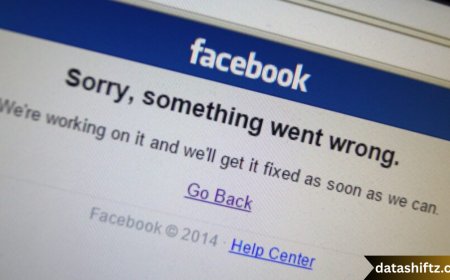Understanding the Role of a Funeral Director: A Guide to Compassionate Service

Introduction
In moments of profound loss, individuals and families turn to someone who can provide both guidance and grace—the funeral director. Often working quietly behind the scenes, funeral directors are the unsung heroes who ensure that final farewells are conducted with dignity, respect, and personalized care. Their role goes far beyond organizing funerals; they offer emotional support, navigate legal procedures, and create meaningful ceremonies that honor the lives of the departed.
This article explores the multifaceted role of a funeral director, highlighting their responsibilities, essential skills, and how they help families through one of life’s most difficult experiences. Whether you're considering a career in the field or are simply curious about the profession, this comprehensive guide provides a thoughtful overview.
Who Is a Funeral Director?
Definition and Scope
A funeral director, also known as a mortician or undertaker, is a licensed professional responsible for organizing and overseeing funeral services. Their responsibilities span from the moment of death to the final interment or cremation. They provide logistical, emotional, and legal support to grieving families.
Funeral directors work at funeral homes, crematoriums, or independently. They often collaborate with clergy, cemetery staff, law enforcement, florists, and other professionals to ensure smooth proceedings.
Core Responsibilities of a Funeral Director
| Responsibility | Description |
|---|---|
| Funeral Planning | Coordinating location, time, format, and ceremony details with families |
| Body Preparation | Embalming, dressing, cosmetizing, or cremating the deceased |
| Legal Documentation | Managing death certificates, permits, and cremation authorizations |
| Transportation | Arranging for the transfer of the deceased to the funeral home or burial site |
| Emotional Support | Providing grief counseling or referrals to bereavement specialists |
| Cultural/Religious Coordination | Respecting and integrating religious or cultural practices into the service |
| Memorial Design | Helping create eulogies, photo displays, or tribute videos |
| Business Administration | Overseeing staffing, scheduling, inventory, and financial paperwork |
Essential Qualities and Training of a Funeral Director
Educational Path and Licensing
Becoming a funeral director typically requires formal education in mortuary science, followed by an apprenticeship and successful completion of state or national board exams. Most countries have licensing boards to ensure ethical standards and competency in the field.
Educational Requirements Include:
-
Associate or bachelor’s degree in mortuary science
-
Training in anatomy, pathology, grief psychology, and embalming techniques
-
Apprenticeship under a licensed funeral director (1–3 years depending on location)
Required Personal Qualities
The role demands a unique blend of technical skill and emotional intelligence. A good funeral director must balance professionalism with compassion.
Key Qualities of a Successful Funeral Director
-
Empathy – Ability to understand and comfort grieving individuals
-
Communication Skills – Clearly explaining options and procedures to families
-
Sensitivity – Respecting diverse cultural and religious practices
-
Attention to Detail – Managing logistics without error during emotionally charged events
-
Problem Solving – Adapting to last-minute changes or unique family requests
-
Business Acumen – Running or assisting in the operation of a funeral home
-
Time Management – Coordinating multiple services and deadlines simultaneously
-
Composure – Remaining calm and respectful in emotionally intense situations
The Emotional and Social Impact of Funeral Directors
A Pillar During Grief
Funeral directors play a crucial role in helping people cope with death. For many families, they are the first point of contact after a loved one passes away. They often act as informal grief counselors, listening patiently and offering comfort while navigating the necessary decisions.
In this way, funeral directors become more than service providers—they become guardians of memory, helping to shape the legacy of a person’s life through ceremony and tribute.
Bridging Culture and Ceremony
In multicultural societies, funeral directors are essential in respecting diverse customs. Whether it’s a Christian burial, Hindu cremation, Muslim janazah, Jewish tahara, or secular ceremony, funeral directors coordinate traditions with precision and respect.
Types of Funeral Services Coordinated by Funeral Directors
| Type of Service | Features |
|---|---|
| Traditional Burial | Viewing, service at funeral home/church, burial at cemetery |
| Cremation Service | May include viewing and service, followed by cremation |
| Green or Eco-Friendly | Biodegradable materials, no embalming, eco-conscious interment |
| Direct Burial or Cremation | No formal viewing or ceremony |
| Religious-Specific | Tailored to beliefs (Catholic mass, Buddhist chanting, Islamic rites, etc.) |
| Memorial Services | Held weeks/months later, often without the body present |
Technology and Modern Funeral Trends
The Digital Shift
The funeral industry has seen a wave of modernization. Today, funeral directors must be tech-savvy as families increasingly request:
-
Livestreamed services
-
Virtual memorials
-
Online obituaries and guest books
-
Digital tribute videos and slideshows
Social media also plays a role, with many families creating memorial pages and events to gather messages and photos from loved ones across the globe.
Personalization of Services
Gone are the days of “one-size-fits-all” funerals. People now want services that reflect the individual. Funeral directors help families personalize:
-
Music playlists
-
Dress code themes (e.g., favorite color)
-
Eulogies and storytelling
-
Memory tables with personal items or hobbies
Innovations Shaping the Funeral Industry
-
Live Streaming Services for remote family members
-
Interactive Memorial Websites
-
Biodegradable Caskets and Urns
-
Ashes into Diamonds or Art
-
AI-generated Eulogies and Tributes
-
Text Notification Systems for service details
-
Memory Booths at memorial receptions
Challenges Faced by Funeral Directors
The job of a funeral director isn’t without challenges. Working long hours, especially during crises such as pandemics or natural disasters, can lead to burnout. Emotional toll from constant exposure to grief, coupled with the physical demands of body preparation and ceremony planning, make it a profession that requires resilience and self-care.
There’s also the delicate balance between serving families and maintaining business profitability—a task that demands ethical clarity and compassion.
Conclusion
The role of a funeral director is complex, demanding, and deeply significant. These professionals are more than organizers—they are caretakers of dignity, providers of comfort, and facilitators of farewell. From legal documentation to heartfelt ceremonies, their impact touches not only grieving families but the larger community.
As society continues to evolve in its approach to death, grief, and remembrance, funeral directors will remain central to ensuring that every life is honored with respect, compassion, and meaning.
Whether you're looking to understand this profession better, planning a career path, or simply seeking to appreciate the service they provide, knowing the depth and breadth of a funeral director’s responsibilities is a step toward recognizing the quiet heroes behind life’s final chapter.
In memory, we find meaning—and funeral directors help guide us there.





























